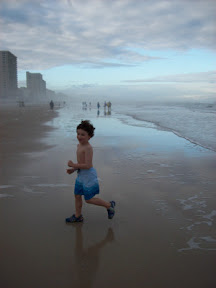 |
| From NMT Images |
Where The Oil Is And Is Not, And How Can You Tell?
It's as much a matter of perception as it is of oil.
Michelle Horne, VP of Nature and Tourism Communications in Corpus Christi tells me me that they have "65 miles of beaches waiting for travelers," and Corpus Christi and Padres Islands have "NOT" been affected by the oil spill. "Texas tourism," her release says, "reassures travelers not to cancel plans to visit the Lone Star State."
Meanwhile Mississippi reports the spill could cost the state $120 million dollars in lost revenue from the state's Coastal Areas, according to one study by the University of Southern Mississippi.
Travelocity, the on line booking giant, notes that the average daily rate for hotels in the Gulf Region continues to free fall, with a stay at Panama City, Florida, costing $96.00 a night, a steep decline from the pre-May 15 price of $125.00.
At the same time parts of the Gulf Coast, reports industry publication, Travel Weekly, continue to do well. Restaurants and hotels in New Orleans, says Stephen Perry of the New Orleans Metropolitan Convention and Visitor's Bureau are having their best year since Katrina. The web sites boldly declares, "Tourism Remains Vibrant in New Orleans Despite Oil Spill".
" So what's happening goes beyond where the oil or tar balls actually are, and where the traveling public thinks they are. Or will end up.
And since perception is reality, the question, how travelers plan their vacations is huge in terms of hard-earned dollars spent, and revenue badly needed by the tourism entities.
What's going on is what Travel Weekly calls, a "two front war" where efforts to contain the actual oil are matched by efforts to correct negative impressions and get accurate information to the public, not to mislead, but to affect public perceptions positively. And quickly.
The Beaches of Fort Myers & Sanibel are running a "Still Pristine" campaign using videos filmed, edited and aired in one day and posted to YouTube to affect public perception.
At a recent Capitol Hill briefing, U.S. Travel Association President Roger Dow called for "accurate information in the media and intelligent marketing and promotional efforts"
His web site also urged President Obama to do more to get the Gulf coast back on its feet.
Meantime, the tourism industry is torn between self interest and altruism.
Travelers are clearly opting to head elsewhere, away from the coasts and are driving north from Florida to the Carolinas and Tennessee.
This is good news for those states, but they don't want to appear to be profiting at the expense of their colleagues' misfortune.
Asheville, N.C., a popular tourist destination, has launched an online campaign to raise funds to help the beleaguered Gulf States to repair their damaged ecosystem. And perennial favorite, Williamsburg, Virginia, is donating 10% of guest room rates to the National Wildlife Federation.
For its part, BP belatedly has distributed $70 million in aid to Florida, Alabama, Mississippi and Louisiana for tourism marketing fund, to spread better news about their destinations.
There's always Alaska, as one tourism agency, with a short memory declared.
The travel industry is doing its best to be honest, and praying the oil geyser stops, letting the sea, the coasts and their businesses heal.
Comments